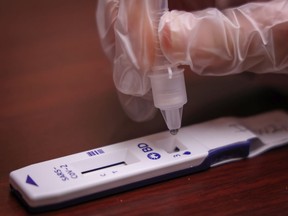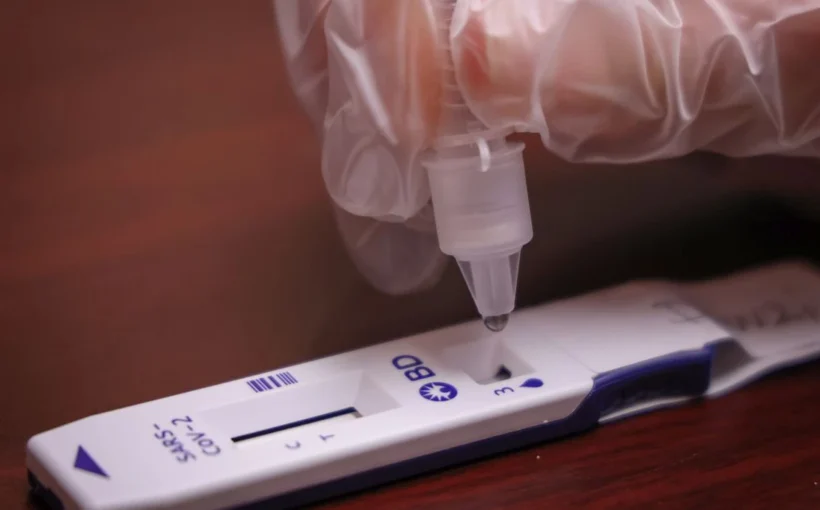
Alberta is extending winter break for students in kindergarten to Grade 12 until Jan. 10 as the province reported an estimated record-breaking 4,000 new cases of COVID-19 on Thursday.
Public students were initially planning to return to school next Monday and Catholic students on Tuesday. Education Minister Adriana LaGrange said in a Thursday evening update the decision to delay the return to school was made following a cabinet committee meeting earlier in the day.
She said over the winter break she heard concerns about the rising cases of the Omicron variant and how it would affect schools, including staffing challenges for teachers, bus drivers, custodians, educational assistants, administrators and maintenance workers.
“Schools are expecting a high number of student absences, making it harder for teachers to manage in-person and at-home learning at the same time,” she said.
LaGrange said school authorities will use the week to gather more information and prepare for instructions to students.
LaGrange said the province recognizes the delay will cause learning disruptions and so diploma exams that were scheduled to begin on Jan. 11 will also be cancelled.
In addition to the delay, LaGrange said 8.6 million at-home rapid tests will be distributed to schools across Alberta on Jan. 10 and 16.5 million medical-grade masks will be provided for staff and students.
“This will bring convenience and is an additional measure to lower risk of in-school transmission,” she said.
Two five-test kits will be offered to each student and staff member and masks will be distributed in a phased approach, with staff and students receiving an eight-week supply.
Opposition NDP education critic Sarah Hoffman said while the decision to move online is a good one, the government needs a better plan to support staff and students.
“We need a plan to properly staff schools,” she said. “This government has failed to do this at every step of the way during the pandemic.”
She added the government should provide N95 masks, instead of medical-grade masks, as well as install HEPA filters and upgrade HVAC systems in schools.
Meanwhile, the province provided estimated COVID-19 numbers on Thursday.
Approximately 4,000 new cases were reported, breaking Wednesday’s record of 2,775. There is an estimated positivity rate of 30 per cent.
There are 371 Albertans in hospital with COVID-19, an increase of 22 from Wednesday. Of those, 48 are in intensive care units, a decrease of nine.
As cases of COVID-19 continue to rise across Canada, a new study out of Ontario shows that despite reduced severity of Omicron resulting in hospitalizations or death, the impacts to the health-care system will likely be significant.
Alberta Health Services is monitoring the situation in the province and is preparing for potential impacts to staffing and patient care.
“To date, health-care services are not being impacted, however we have been planning for increased staff illness. Plans include shifting staff members to areas of highest priority, using alternate models of care, and prioritizing (health-care workers) for testing to maximize available workforce.”
He said a reduction in services and surgeries may also be contemplated to redeploy staff in the highest areas of need.
Woods added the number of COVID-19 positive health-care workers so far in December is in line with recent months, according to preliminary data.
The sick rate in December 2019 was 5.3 per cent, while the sick rate for December 2020 was 5.6 per cent. The sick rate for November 2021 was 5.4 per cent.
“We anticipate we will see increased sick rates in the days ahead as Omicron spread continues,” Woods said.
Source: EdmontonJournal



